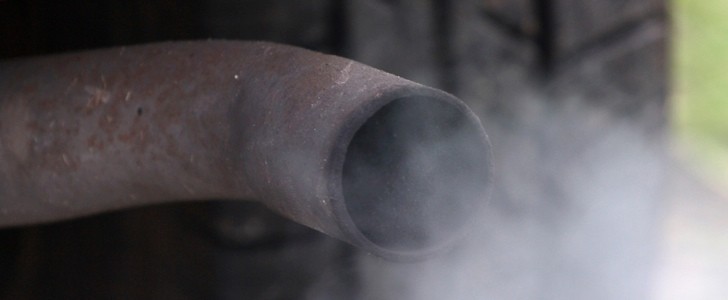Real-world fuel consumption is like the white elephant in the room – everybody knows about it, but nothing is ever done. Until now, because the European Union has just announced harsh new regulations. By 2017, new cars will be benchmarked under real conditions, not in laboratories.
Environmental groups have criticized the current testing system as being weak and ineffective. As a result, air pollution has worsened to such a level that some crowded capitals will ban diesels from their streets completely.
We know from experience that the official fuel consumption figures are nearly impossible to achieve, even under ideal conditions. The amount of fuel burned by an engine is directly linked to its emissions, so in theory a downsized TDI or dCi producing 90 grams of CO2 per kilometer actually emits somewhere in the region of 120 (presuming that consumption grows by a third).
It's not just the unrealistic testing cycle that environmentalists are worried about; it's diesel engines themselves. While they offer better fuel economy, which in turn results in lower CO2 emissions, diesels produce much higher NOx levels, and other particles they emit may cause asthma and cancer, especially in children.
"The continuation of the current weak and ineffective testing regime has seen air pollution worsen with widespread health consequences and the prospect of cities banning diesel vehicles as the only remaining solution," said environmental lobby group Transport & Environment.
With pollution on the rise, Paris could ban diesel from its streets completely by 2020 and London's mayor might push for similar regulations within the downtown area.
But the new rules could prove to be a major headache for European automakers. According to Automotive News, while the new testing cycle is supposed to be enforced starting in September 2017, the specific parameters have not been announced. Basically, companies could have as little as two years to adapt.
Diesels account for around half of all new cars sold in Europe at the moment. Hybrid technology could be a solution, but it is not yet widely available and could prove more costly. PSA Peugeot Citroen announced a brand new system where electricity is replaced by compressed air in its hybrids, but appears to have moved away from the technology and is pursuing PHEVs.
If the new regulations are going to be the game-changers we think they are, some car models may drop diesels completely. When you consider that Renault makes very little money or even a loss for each Clio it sells, investing into the development of brand new mill seems impractical.
We know from experience that the official fuel consumption figures are nearly impossible to achieve, even under ideal conditions. The amount of fuel burned by an engine is directly linked to its emissions, so in theory a downsized TDI or dCi producing 90 grams of CO2 per kilometer actually emits somewhere in the region of 120 (presuming that consumption grows by a third).
It's not just the unrealistic testing cycle that environmentalists are worried about; it's diesel engines themselves. While they offer better fuel economy, which in turn results in lower CO2 emissions, diesels produce much higher NOx levels, and other particles they emit may cause asthma and cancer, especially in children.
"The continuation of the current weak and ineffective testing regime has seen air pollution worsen with widespread health consequences and the prospect of cities banning diesel vehicles as the only remaining solution," said environmental lobby group Transport & Environment.
With pollution on the rise, Paris could ban diesel from its streets completely by 2020 and London's mayor might push for similar regulations within the downtown area.
But the new rules could prove to be a major headache for European automakers. According to Automotive News, while the new testing cycle is supposed to be enforced starting in September 2017, the specific parameters have not been announced. Basically, companies could have as little as two years to adapt.
Diesels account for around half of all new cars sold in Europe at the moment. Hybrid technology could be a solution, but it is not yet widely available and could prove more costly. PSA Peugeot Citroen announced a brand new system where electricity is replaced by compressed air in its hybrids, but appears to have moved away from the technology and is pursuing PHEVs.
If the new regulations are going to be the game-changers we think they are, some car models may drop diesels completely. When you consider that Renault makes very little money or even a loss for each Clio it sells, investing into the development of brand new mill seems impractical.

